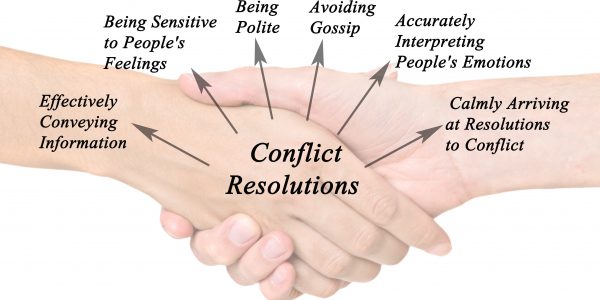
Collaborative Practice
Divorce and other family disputes are a challenging and emotional experience for the parties and their families. Historically, divorce and the like have taken place in the courts and have unnecessarily increased the level of conflict and cost, both emotionally and financially. Collaborative Practice, also referred to as Collaborative Law or Collaborative Divorce, is a non-adversarial cost-effective alternative to the all too common destructive and frequently drawn out family law litigation process. Recently adopted into legislation as an approved and recognized option for alternative dispute resolution for family matters, Collaborative Practice is a voluntary, confidential, and transparent process that utilizes a team of professionals (an interdisciplinary team) and requires a commitment to settling the issues involved without court intervention.
The interdisciplinary team is typically comprised of two family law attorneys, a neutral financial professional, and a neutral facilitator. The professionals on the Collaborative Team, all of whom have completed advanced specialized training in Collaborative Law, employ a problem-solving technique known as interest-based negotiation, which allows for a creative momentum to evolve as the team works together and the process moves forward. The professionals model constructive communication and behavior for the clients and all negotiations occur in informal meetings conducive to collaboration. Threats, positioning, intimidation, and hostile language have no place in the Collaborative Process. Participants are reinforced to focus on resolving conflict and not on assessing blame. The focus is on the future and avoiding unnecessary discussions of the past with the goal of reaching a settlement that meets clients’ individual and joint needs and interests.


Meeting together with you to resolve your family matters in a civil and respectful manner, the process occurs in a safe environment with each client being represented by a Collaboratively trained family law attorney. Although the attorneys are advocates for their clients, they do not act in an adversarial or litigious manner. The clients agree to work together openly and honestly, and commit to disclose all relevant information. The neutral financial professional assists in determining division of property, valuing businesses and assets, and clarifying future financial obligations, thus avoiding the cost and tension of competing experts. The neutral facilitator, who is a licensed mental health professional, facilitates the process of communication and problem-solving among the clients and the Collaborative Team members for more efficient, respectful, open, and amiable dispute resolution.
Why Should I Choose Collaborative Practice?
• Protect Your Privacy: Unlike litigated family cases, your matters remain confidential and out of public records including media. This helps protect you, your family, and your personal information.
• Self-Determination: Unlike litigation, the goal is mutually-agreed upon settlements completely outside of court and not determined by a judge or other third-party.
• Less Strain on Family: Unlike litigation, Collaborative process is a non-adversarial option for families seeking to minimize stress on themselves, children, and others by creating shared solutions while maintaining open communication and transparency.
• Promising Outlook: Unlike litigation, the goal is not to destroy the other party but to constructively settle your family matters so that everyone involved in the matter can continue to have amiable relationships, allowing for a more favorable and peaceful future.
Why Should I Choose Dr. Saketkoo as my Neutral Facilitator?
As previously stated, the goal of the Neutral Facilitator is to help the clients work successfully within the Collaborative model to achieve a positive resolution that minimizes the negative economic, social, and emotional consequences the parties often experience in the traditional adversarial family law litigation process. As a Collaborative Team member, the Facilitator’s objective is to facilitate communication and problem-solving among the clients and the Collaborative Team members.
As one of less than 10 Accredited Collaborative Practice Neutral Facilitators in Florida, Dr. Saketkoo has earned two doctoral degrees in psychology with over 30 years of clinical experience, rendering her uniquely qualified to guide exploration, identification, and prioritization of your concerns throughout the process. Additionally, credentialed as a Florida Supreme Court Certified Family Mediator, Dr. Saketkoo is distinctly skilled to assist you in exercising your own rights of self-determination and in generating creative problem-solving so that you are able to reach a mutually acceptable resolution rather than leaving these important decisions regarding your family to a judge. Specifically, in the process, Dr. Saketkoo will:
- Assist you in creating goals for what you want for yourself and for your family
- Implement techniques to aid in the management of emotions typically part of the divorce/family matter process and in stress reduction
- Facilitate the identification and understanding of differing perspectives and interests to be included in the decision-making process
- Model and facilitate constructive communication to create and maintain a safe and respectful environment, producing improved decision-making and building increased potential for more effective communication between all involved moving forward
- Assist you in strengthening effective communication, negotiation, and conflict resolution skills
- Assist you to achieve outcomes that reflect your goals and interests [and address the best interests of your children if applicable]
- Increase effective communication among family members
- Assist you in recognizing your respective parenting strengths and limitations to enhance your future co-parenting relationship
- Assist you to develop a workable parenting plan that meets the child(ren)’s developmental needs
- Enhance the Collaborative Team’s effectiveness at meetings with the goal of making each meeting as balanced, productive, and efficient as possible
- Enhance the efficiency of the process by performing and overseeing administrative functions, allowing the other team professionals to focus on their specialty
If you have questions about the Collaborative Process and/or would like to know more about how this process can help you navigate your family matter, feel free to contact Dr. Saketkoo.



